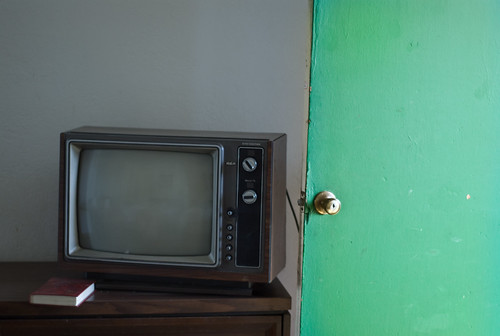
Coaxial cable is a widely used type of wire used for carrying a wide range of transmissions from source to device. Examples include use in cable and satellite TV applications, cable Internet, computer networks, and radio lines. Coaxial cable comes in different types, usually designated by an RG (for Radio Guide) before a number. The differences are usually in the quality of the materials used or the specific manufacturer.
Identification
Video of the Day
Coaxial cable is usually black or gray on the outside and can vary in thickness. Underneath the outer layer there is usually a metallic layer made of aluminum. Under this layer there may be a protective plastic like sheath and inside this sheath is the actual wire usually made out of copper or aluminum braided wiring.
Video of the Day
Features
Each layer within a coaxial cable serves a purpose. The braided copper or aluminum wiring is what carries the actual signal which is in a radio frequency format. The sheath that covers the wire is designed to prevent incoming radio signal interference while also preventing signal leakage.
The metallic layer over this sheath is not found in all types but further helps prevent signal interference. The final outer layer is thick and durable and designed to protect the cable from moisture and environmental conditions.
Significance
The multi-layer design of coaxial cable makes it useful for a wide range of applications. Not only is this type of cable resistant to environmental conditions, making it ideal for underground and outdoor runs, it can also be run in metal ducts and near other metal items.
The signal transmission is also not affected by turns and bends in the cable due to cable flexibility. Coaxial cable can be run along the sides of buildings, underground, and around turns and corners without snapping the wire or impeding the signal.
Types
Common types of coaxial cable include RG-6, RG-8, RG-58, and RG-59. RG-6 is one of the most common, found in household and business applications such as cable television connections. RG-59 is considered to be the predecessor to RG-6. RG-8 cable is used mainly for radio transmissions such as CB radio while RG-58 is found in Ethernet network applications.
Considerations
Coaxial cable is resistant to the effect of attenuation (signal loss over long distances) up to a certain length. The average coaxial cable can run 100 meters before attenuation begins to become noticeable.
While coaxial cable is resistant to environmental conditions, running the cable through cable tubes and lines underground is a good way to protect the cables from excessive moisture and the risk of being cut if digging occurs.